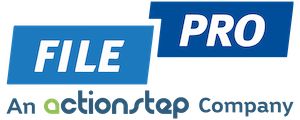Read Part 1 – Success is in the setup
In Part 1 we discussed how initial negotiations can make all the difference when starting new work. Part 2 looks at how you bill and when you collect, and how this affects your debtors and cash flow.
Part 2 – Show me the money
In my experience, there are four common ways firms will bill for the same job
- Hourly rate, paid upfront
You can charge $300 per hour, estimate that the job will require 10 hours and require the client to deposit $3,000 to cover your anticipated fees; or - Fixed fee, paid upfront
You can tell the client that you will do the task for $3,000 payable in advance as a fixed fee; or - Hourly rate, paid upon completion
You can charge the same $300 per hour, work the same 10 hours with no deposit and then collect the $3,000 fee after the job is done; or - Fixed fee, paid upon completion
You can agree to handle the same job for $3,000 fixed fee but not get paid up-front and have the same collection problems.
Fixed fee vs hourly rate is an ongoing debate that has been covered time and time again. However the discussion is often made overly complex.
The only real difference between a fixed fee versus hourly rate is the difference between the client, with limited experience, having to budget the job, versus the lawyer taking responsibility for budgeting the case.
But is it fair that you take the risk? That’s not the point – the point is that your clients (like all consumers) want maximum certainty. Satisfy your clients ‘wants’ and your business will thrive.
Either way, the only other issue crucial to your cash flow (i.e. your business’s life blood) is whether you get paid:
a) Upfront; or
b) Paid as you work; or
c) Collect from a client on completion.
Get paid up-front, as much as possible
While it is dependent on how you choose to charge, the different options available for getting paid up-front should be to:
- Have the full fixed fee or estimate paid up-front; or
- Establish a retainer and top this up as you do the work.
Setting up your payment options
Cash/cheque
While this may not be possible for larger business clients, cash and cheque payment is often preferable to individuals. The obvious drawback is inflexibility (funds need to be physically transferred) and accessibility (clients may not have access to funds as fees increase).
Credit card
While credit card interest is high (around 19%) many individuals prefer to pay this way. Even some businesses manage their entire cash flow using a credit card’s 30-50 day interest-free period – the points are often a contributing factor. Your firm should make Credit Card payments available for this reason. Be sure to investigate this option as you will incur credit card merchant fees and may then need a policy to surcharge these fees back to clients.
Direct Debit
This is a great option as unlike cash it can be automated, though direct debit facilities will need to be set up via your bank. The disadvantage is that your clients may feel as though you’re drawing out the work as there’s no incentive to finish the job quickly
Professional fee funding
Providers like feeLink offer a service that allows law firms to get paid up front, while clients get to pay over time as the job proceeds. This is a popular option as it provides a win-win – law firms can better manage their cash flow and clients have the advantage of being able to spread their fee, which might be quite a large lump sum, over a number of months.
With fee funding it is the client that pays the small cost of interest over the term of the arrangement – not the lawyer.
Part 2 – Summary
- Consider giving your clients the certainty that fixed fee charging allows. It may suit some circumstances and not others – but they will appreciate it.
- Regardless of how you charge – get as much payment up-front as possible.
- Cash, credit cards and working with retainers all have some disadvantages.
- For some clients, professional fee funding can provide another payment option for lawyers.
Dave Birch is the Managing Director of smartAR, providers of innovative cash flow solutions to Australian & New Zealand businesses. The team at smartAR work with Accountants, Lawyers, Architects and professional service firms to help their businesses get paid… faster!

